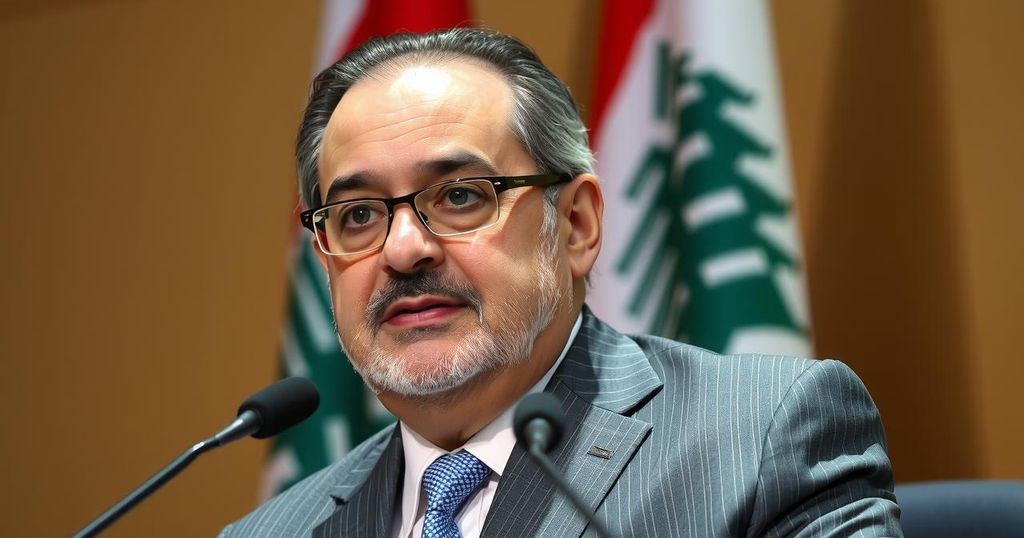Lebanese President Joseph Aoun has appointed Nawaf Salam, an ICJ judge, as the new prime minister amid ongoing economic crisis and political instability. Salam received majority endorsement from lawmakers and is seen as a figure of change, tasked with implementing critical reforms. His selection follows a prolonged caretaker government period and highlights the complex political dynamics in Lebanon, particularly concerning Hezbollah’s role.
Lebanese President Joseph Aoun has appointed international jurist Nawaf Salam, the presiding judge at the International Court of Justice in The Hague, as the new prime minister. This decision comes after a prolonged period of political instability characterized by a caretaker government lasting over two years due to Lebanon’s severe economic crisis. President Aoun’s election last week had ended a two-year vacancy in the presidential office, paving the way for this governmental formation.
Salam’s selection was met with majority approval from Lebanese lawmakers, confirming 84 out of 134 parliamentary votes in his favor. Meanwhile, nine members supported the continuation of interim prime minister Najib Mikati, while 35 refrained from endorsing either candidate. President Aoun’s consultations with lawmakers prior to this announcement emphasized the urgency for new governance capable of addressing the nation’s pressing challenges.
Critically, Salam’s nomination is viewed by many as a purely Lebanese initiative, free from foreign interference, as articulated by independent lawmaker Firas Hamdan. Supporters of Salam believe he embodies the desired change among Lebanese citizens seeking to eradicate corruption and nepotism from their political landscape. The new prime minister faces significant tasks, including implementing essential reforms and restoring areas damaged during the Israel-Hezbollah conflict, alongside addressing the profound financial collapse that has distressed the nation.
Furthermore, some voices in the political arena, such as lawmaker Georges Adwan, expressed that Hezbollah should transition towards political engagement, asserting that “the era of weapons is over.” Conversely, reports from media channels aligned with Hezbollah suggested that the nomination of Salam could signify a “complete US coup,” reflecting ongoing tensions within Lebanon’s political factions.
It is pertinent to note, however, that the designation of a prime minister does not automatically result in the swift formation of a new government, as historical precedents indicate potential delays due to entrenched political divisions.
The appointment of a new prime minister in Lebanon follows a critical period marked by political paralysis and economic turmoil. After two years under a caretaker government, President Joseph Aoun’s recent election allowed for the formation of a new government aimed at addressing the multifaceted crises facing the country. The economic decline in Lebanon has been catastrophic, making governance and reform efforts imperative for recovery. The political landscape is further complicated by the influence of groups like Hezbollah and the historical patterns of political alliances and rivalries that shape Lebanon’s governance.
The appointment of Nawaf Salam as Lebanon’s new prime minister marks a potential turning point in the country’s quest for stability and reform. With a mandate from a majority of lawmakers, Salam faces significant challenges, including the urgent need for economic reforms and reconstruction efforts. Political dynamics, particularly in relation to Hezbollah and the influence of foreign powers, continue to play a pivotal role in Lebanon’s fragile governance landscape. The upcoming weeks will be crucial in determining the effectiveness of Salam’s leadership in navigating these complex issues.
Original Source: www.hindustantimes.com






